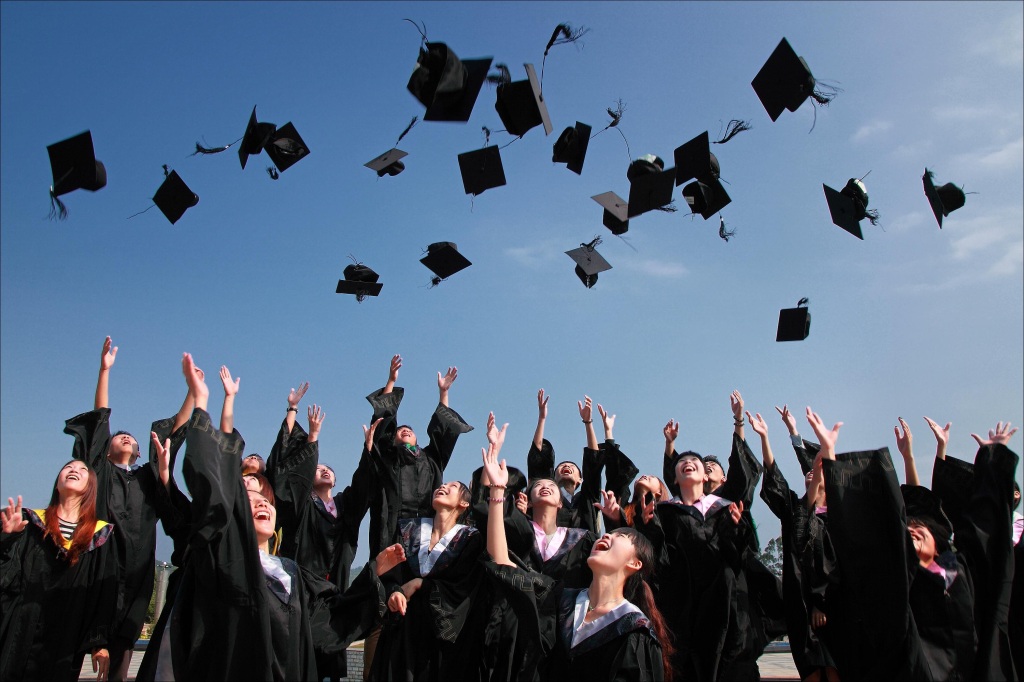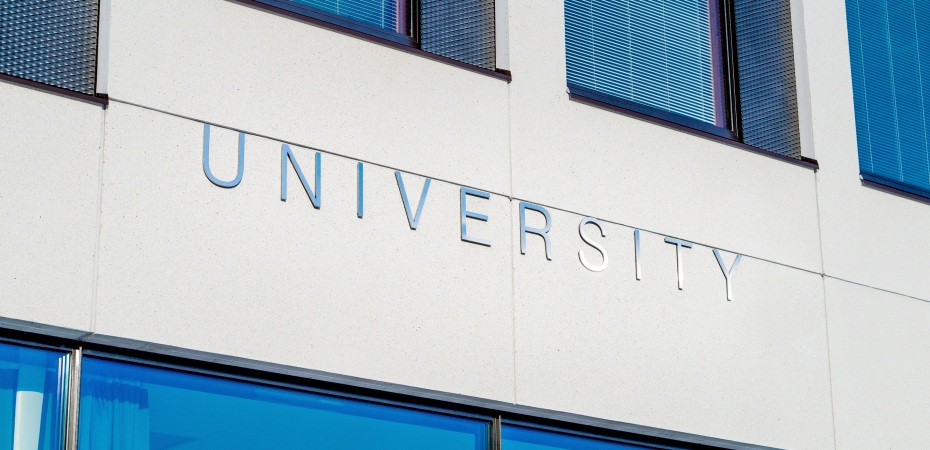I used to be a fairly big fan of Penn & Teller’s Showtime show Bullshit! Early in the show’s lifespan, it covered provocative and topical subjects like psychics, near death experiences, the War on Drugs, and PETA, examined through a skeptical lens that often emphasized empirical evidence and critical thinking. Of course, the show was also meant to be entertainment, but some of its better episodes still serve as useful introductions to skepticism and alternative, critical approaches to some controversial issues. Bullshit! began a steady downward slide, in my opinion, sometime around the third season.
 One of the first signs of this was an episode simply titled “College,” where the duo’s strongly libertarian leanings really start to bleed through. The episode purports to be about political correctness, diversity standards, and free speech on college campuses, but delivers a vague and almost anti-intellectual message amidst cherry-picked clips of lectures, cherry-picked interviews with professors and students, and a lot of talking heads such as Daniel J. Flynn, a columnist who authored the very objective and unbiased sounding book, Why the Left Hates America.
One of the first signs of this was an episode simply titled “College,” where the duo’s strongly libertarian leanings really start to bleed through. The episode purports to be about political correctness, diversity standards, and free speech on college campuses, but delivers a vague and almost anti-intellectual message amidst cherry-picked clips of lectures, cherry-picked interviews with professors and students, and a lot of talking heads such as Daniel J. Flynn, a columnist who authored the very objective and unbiased sounding book, Why the Left Hates America.
Partway through the episode, the Bullshit! crew gets an opportunity to talk with philosopher Noam Chomsky about the state of higher education. The very first question they ask him is: “Have campuses become bastions of left-wing groupthink brainwashing?”
This is pretty extraordinary indication of the agenda behind the episode. The show tries to justify this question primarily through the decidedly uncritical use of anecdotes, as well as plenty of sweeping generalizations about college campuses made by its hosts and various guests. The fact that sky-high tuition rates are barely discussed except as a reason not to attend college is yet further proof of the episode’s narrowly-focused conservative agenda. The overall attitude seems to be, as one guest says, ‘If you want to get laid, go to college; if you want to learn, go to a library.’
I bring this up to illustrate a perspective that continues to have influence in our society today. It’s echoed in conservative outlets like The National Review and attacked by even our own Secretary of Education, Betsy DeVos. News stories pop up frequently of ‘assaults on free speech’ allegedly taking place in campus protests. Though these are usually isolated incidents reported on with little in the way of thorough detail, the impression is easily given that they are part of a wider national epidemic.
The truth is that most college professors identify as liberal, and at some universities the proportion of liberals to conservatives in academia is greatly skewed. In his research, sociologist Neil Gross found that professors are on average about three times as liberal as the general population.1 On the other hand, only 8-9% of faculty are made up of those on the far left – the pool that Penn & Teller seems to have drawn from for their representation of leftist academics featured in their episode of Bullshit! 19% of professors described themselves as political moderates. It’s important to distinguish this fact, that many college professors have a liberal affiliation, from the separate claim that college institutions themselves indoctrinate students into liberalism.
A new study published last month in The Conversation conducted a survey of more than 7,000 undergraduates at over 120 four-year colleges and universities. The students responded to questions about their attitudes on conservatism and liberalism first during their freshman year and again during their sophomore year. The results showed that most students coming out of a year of college have a more favorable view of both liberals and conservatives.
Among all students, 48 percent viewed liberals more favorably in their second year of college than when they arrived on campus. However, among the same students, 50 percent also viewed conservatives more favorably. In other words, college attendance is associated, on average, with gains in appreciating political viewpoints across the spectrum, not just favoring liberals.2
The research also found that approximately the same number of students developed a worse attitude towards conservatives (31%) as those that developed a worse attitude towards liberals (30%). What’s worth noting, though, is that the study observed the most growth in appreciation among students who had started off their freshman year really disliking either liberals or conservatives. As the authors point out, this lends credence to an argument long made in defense of higher education: it can help broaden one’s perspective and soften one’s biases by providing a climate where one is more likely to interact with others of diverse interests and different backgrounds.
If colleges were really about indoctrinating young people into liberal ideology, we probably wouldn’t see such an even distribution in how political attitudes among students change. Yet this highlights something else usually overlooked in debates about political influence at the university level. All too often students are treated as if they’re impressionable, passive receptors of whatever their teachers choose to throw at them. The data above may indicate that educators are doing a great job opening their students’ minds, but it may just as well indicate that students have a lot more personal autonomy than we tend to credit them with. Many professors are likely very aware of this, too, from the regular interactions they may have with their students.
Professor of political science Matthew Woessner writes about how this emerged in his own research into these subjects:
Whereas some disciplines, such as political science, often shun partisan advocacy, many fields, including sociology, ethnic studies, and social work, openly advocate a distinct ideological worldview. If these and similar studies are correct, it suggests that student beliefs are surprisingly resilient. For every one student who is actively recruited to a leftist political cause, a vast majority complete their education with their values largely intact.3
Why student autonomy is so overlooked is a complicated matter. One possibility is that what parents and some conservatives are fighting against isn’t really liberal indoctrination at all, but the more general cultural phenomenon of children and young people drifting away from the values and traditions of their parents’ generation. This seems to better explain why the push against liberalism in academia typically references student autonomy and individual rights only in passing, treated as a mere means of furthering its own agenda, while no substantive recognition is given to students’ abilities to independently evaluate ideas and reach conclusions of their own accord.
Of course, that issue is a bit beyond the scope of this essay. Indeed, the attack on liberalism in campuses isn’t just limited to the impact it has on students, but is sometimes articulated as a concern with fairness in employment. Do liberal universities discriminate against conservative students? Do conservative-leaning professors feel like their voice matters less, or feel that they are excluded from certain opportunities in favor of their more liberal colleagues?
Undoubtedly, if you go looking for examples to fit any of these problems, you will find them. The real question here is whether these instances – taken at face value – are actually demonstrative of an overarching liberal bias, or if they stem from local concerns, such as the specific hiring and admissions practices of individual schools. Once again, there is research that helps to shed light on this question.
Scott Jaschik covers a number of related studies in an article for Inside Higher Ed.4 One study, he notes, created mock applications for undergrads applying to doctoral programs. A variety of top programs in different fields were contacted, with most of the applications mentioning no political affiliation, whereas others talked about working on the Obama or McCain presidential campaigns. Then the researchers had each university response evaluated by independent and politically mixed observers, according to a number of metrics. In the end, no statistically significant evidence of bias was found.
Another study from 2007 attempted to discern why more conservatives don’t get doctoral degrees. No significant difference was documented in grades or academic performance. However, conservative students were found to be much more likely to choose majors that would land them a job or an MBA than those that would lead to a PhD. Just 9% of those on the far left and 18% of liberals opted for this path to graduation, as opposed to 33% of conservatives and 37% of those on the far right. Additionally, more liberals (24% far left, 18% liberal) than conservatives (11% far right, 9% conservative) reported even considering a PhD.

This appears to support a self-selection theory: conservatives are not actively kept out of universities by faculty or administration, but they hold other interests and values that make them less inclined to seek a place in academia. Still, some might wonder if this is because conservatives do feel unwelcome or unfairly treated in our institutions of higher learning. Perhaps the bias against them is more subtle than overt?
Jaschik ends his article by discussing a 2016 book by Jon A. Shields and Joshua M. Dunn that explores exactly this. The book, Passing on the Right, interviews 153 conservative professors working in the humanities and social sciences on 84 campuses. As expected, there are some areas of tension reported in the interviews, such as political discrimination in tenure and academic publication. However, troubles like these seem to be exceptions rather than the rule, and the overall conclusion of Shields and Dunn’s book is that conservative academics are happy and successful in their institutions.
We’ve seen a few good reasons, I believe, to reject the liberal indoctrination claim. Simply put, there is little to no evidence endorsing it. Too often, this claim is backed by nothing other than the disproportion of liberal to conservative academics, and a sample of cherry-picked instances where liberal professors are considered to be teaching ‘objectionable’ things in the classroom. Indoctrination is not just the presentation of other views, though, nor is it indoctrination when those views are predominantly shared within a particular institution. When it isn’t defined so loosely (or for political convenience), indoctrination is understood to be a process of instilling certain beliefs and/or values in another person, typically in an uncritical manner. And, as noted, the evidence does not show this. It arguably shows the opposite.
Colleges are associated with elitism because they often are different from the outside world. Education is a privilege, and facilitating an environment for education involves constructing a kind of space that will be, and should be, distinct from some other, non-educational types of spaces. Parents and communities may feel alienated, as if they have less participation in universities than they tend to have in grade schools. In some respects this is certainly true, but it’s also far from uncommon for colleges to reach out and invite local participation. It’s equally important here to note that political and religious rhetoric singling out institutions of higher learning as “bastions of left-wing groupthink” contributes to shaping the perceptions people have of colleges, which may well affect the likelihood that some parents and communities will meaningfully engage with such institutions at all.
This fits with a steep and sudden decline in how conservatives see higher education, according to a Pew study from last year.5 In 2015, 54% of Republicans believed colleges to have positive impact on the country, but by 2017 that number dropped to 37%. Democrats, on the other hand, continue to have a positive view of college that is gradually rising. What might account for this swift change in conservative attitudes is open to debate, although it surely has some to do with conservative media’s constant attacks on identity politics, campus protests, and liberalism in the universities over the past two years, possibly adding gas to the fire already ignited by outlandish tuition rates.
Higher education may not be indoctrinating students into liberal ideology, but there are certainly problems surrounding it, as we’ve seen. These problems don’t admit of an easy or simple solution, either, though there are steps that could be taken towards improving things. Neil Gross suggests that one thing which could help change the professional landscape in colleges would be for the Republican Party to begin showing more support for basic research in the natural sciences, the social sciences, and the humanities.6 Fighting back against the anti-intellectual image the GOP is usually labeled with could persuade faculty and students into taking more chances they might not normally take. Another prospect for change would be for colleges to facilitate more open forums and spaces for civil dialogue between students of different political persuasions.
Nevertheless, if the ‘cultural drift’ explanation I offered above is any accurate characterization of what’s really going on behind the claim of liberal brainwashing in universities, I fear we’re unlikely to see substantial changes coming anytime soon. A decade or two ago, this drift might have been chalked up to irreligion, or godlessness, but with these religious institutions now in decline – exemplified by the increasing irrelevance of evangelicalism and the rise of the ‘Nones’ – perhaps colleges are the next best, and most visible, institution in line for us to collectively imbue with responsibility for the waywardness of our young people in America. There are certainly very old traditions there to rely on, associating the younger generation with a corruption of established values, and pinning that corruption on education.
References:
- Chris Mooney, Yes, Liberals Rule the Ivory Tower – But Why? Mother Jones (April 20, 2013).
- Matthew J. Mayhew et al., Does college turn people into liberals? The Conversation (February 2, 2018).
- Matthew Woessner, Academe’s Persuasion Paradox, Inside Higher Ed (July 15, 2013).
- Scott Jaschik, Professors and Politics: What the Research Says, Inside Higher Ed (Feb. 27, 2017).
- Sharp Partisan Divisions in Views of National Institutions, Pew Research Center (July 10, 2017).
- Neil Gross, Is There a Real Liberal Bias in Higher Ed? Association of Governing Boards of Universities and Colleges (May/June 2014).
